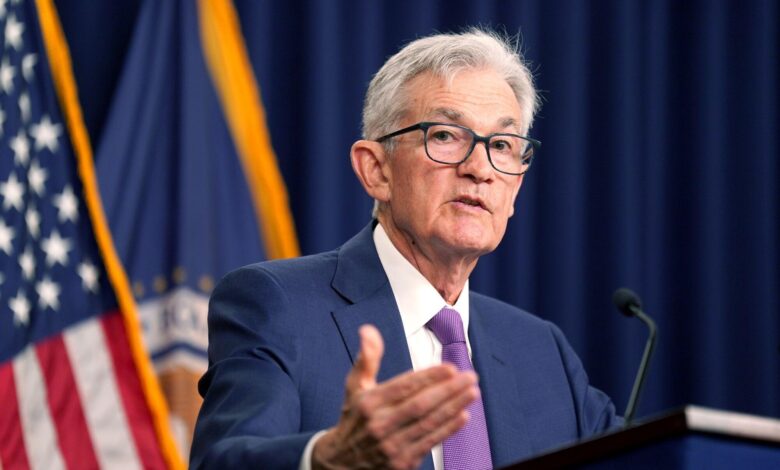Powell reiterates Fed likely to keep rates higher for longer

FEDERAL Reserve chair Jerome Powell said the US central bank needs to be patient as it awaits more evidence that high interest rates are curbing inflation, doubling-down on the need to keep borrowing costs elevated.
Powell reiterated it will likely take longer than previously thought to attain the confidence needed to lower interest rates, echoing remarks made following the Fed’s latest meeting on May 1. He described current rates as restrictive by “many, many measures” but noted time will tell if policy is sufficiently restrictive to bring inflation back to the Fed’s 2 per cent target.
“We think about the effect of the things we’re doing on financial conditions more broadly and on the economy,” Powell said on Tuesday (May 14) during an event hosted by the Foreign Bankers’ Association in Amsterdam.
“All of those things lead us to believe at this time that policy is restrictive, and that it looks like it will take longer for us to become confident that inflation is coming down to 2 per cent over time.”
“We think that it’s probably a matter of just staying at that stance for longer,” he added.
During the moderated discussion between Powell and European Central Bank Governing Council member Klaas Knot, the Fed chief reiterated it wasn’t likely that the Fed’s next move will be a rate hike. Powell added it’s more likely that the Fed will just keep the policy rate where it is.
GET BT IN YOUR INBOX DAILY

Start and end each day with the latest news stories and analyses delivered straight to your inbox.
US central bankers, including Powell, have expressed disappointment at the lack of inflation progress in the first quarter. Earlier this month, policymakers kept their benchmark policy rate unchanged at a 23-year high, a level Powell said he was prepared to maintain “for as long as appropriate.”
Powell said that he expects inflation will move lower on a monthly basis, but price figures in the first quarter have tempered his confidence.
“The first quarter in the US was notable for its lack of further progress on inflation,” he said. “We did not expect this to be a smooth road, but these were higher than I think anybody expected.”
“What that has told us is that we’ll need to be patient and let restrictive policy do its work,” Powell said.
Producer prices
The producer price index, a measure of wholesale prices, topped all economists’ forecasts in April, a government report showed on Tuesday. That said, several components from the report that feed into the calculation of the Fed’s preferred inflation gauge – the personal consumption expenditures price index – were more mixed.
Powell described on Tuesday’s report as “mixed.” The consumer price index for April will be released Wednesday, and economists surveyed by Bloomberg estimate prices rose a firm 3.4 per cent from a year earlier.
The US economy continues to show resilience even with the Fed settling in with higher-for-longer rates. Non-farm payrolls have averaged 246,000 a month so far this year, and unemployment remains low. The April jobs report, however, did show some signs of moderation, with a slower pace of job growth and an unexpected tick up in unemployment.
Powell described the labour market as “very strong” with signs of gradual cooling and re-balancing, in part driven by an increase in labour supply from immigration as well as an easing in demand. He added the labour market is about as tight as it was before the pandemic in 2019.
European outlook
ECB officials including president Christine Lagarde have signalled they’ll begin to lower borrowing costs at their June meeting, a sentiment Knot echoed on Tuesday. What happens after is less clear and more controversial.
Some European policymakers favour a series of quick rate cuts to reduce the burden on the euro-area economy, while others call for caution, arguing with persisting risks to consumer prices. Though ECB officials insist on being independent from the Fed, there seems to be some disagreement on how much the ECB’s monetary policy can diverge from that of its US counterpart. BLOOMBERG

